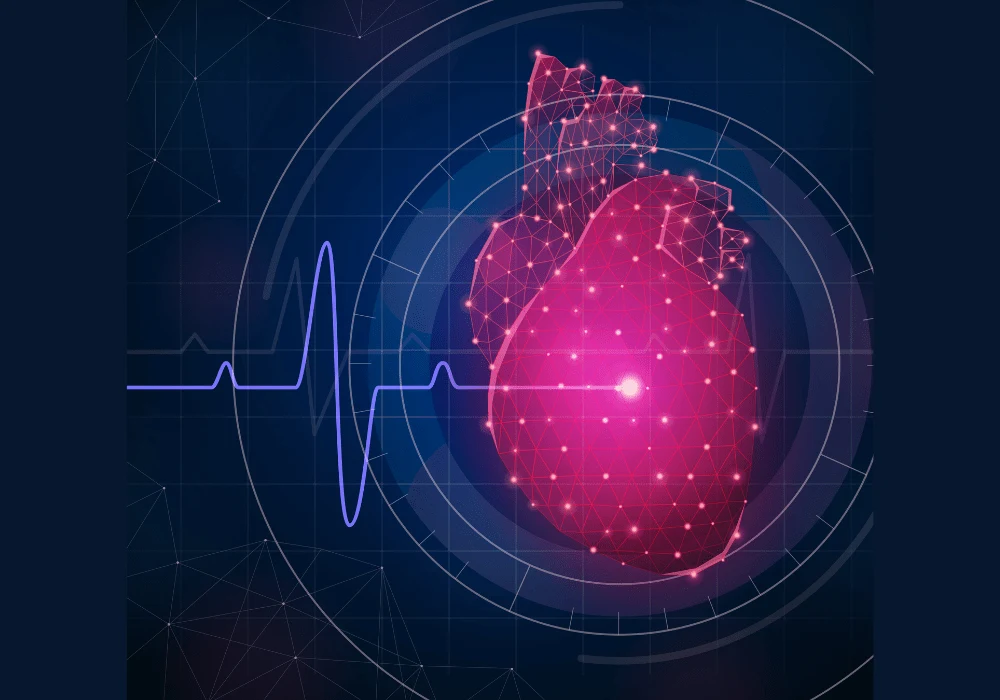Artificial intelligence is transforming cardiovascular imaging and interventional cardiology, enhancing diagnostic accuracy, procedural guidance and clinical decision-making. AI-powered technologies have emerged as integral tools, streamlining workflows, reducing variability and offering predictive insights. The integration of machine learning (ML) and deep learning (DL) into cardiovascular imaging has led to improved automation in image acquisition, interpretation and segmentation. AI enhances efficiency by reducing the time required for manual image analysis and ensuring consistency in diagnostic assessment.
As interventional cardiology advances, AI-driven applications continue to redefine patient management by improving precision, optimising procedural outcomes and personalising interventions. The ability to combine imaging data with AI-based predictive analytics offers significant advantages in risk assessment and treatment planning. A recent study explored AI’s impact on cardiovascular imaging and interventional cardiology, highlighting emerging trends, clinical applications and implementation challenges.
Advancements in AI for Noninvasive Cardiovascular Imaging
AI has significantly enhanced noninvasive cardiovascular imaging, spanning echocardiography, cardiac magnetic resonance imaging (MRI), nuclear imaging and computed tomography (CT). These modalities benefit from AI’s ability to automate segmentation, quantify cardiac structures and detect pathological features with high accuracy.
Automated image analysis reduces human error and variability, leading to consistent and reproducible results. AI-powered algorithms can process large datasets efficiently, enabling rapid diagnosis and aiding in treatment planning. In echocardiography, ML algorithms facilitate view classification and real-time structural assessment, while DL techniques enhance image quality and enable automated feature extraction. AI models assist in identifying abnormal patterns in echocardiographic images, allowing for earlier detection of cardiovascular diseases.
Cardiac MRI has benefited from AI’s capability to accelerate scan acquisition and improve functional quantification. AI applications enable motion correction and artefact reduction, enhancing image quality and diagnostic confidence. Similarly, nuclear imaging has integrated AI for predictive modelling, risk stratification and automated myocardial perfusion assessment.
Must Read: AR in Cardiovascular Imaging: Feasibility and Applications
AI applications in CT imaging have improved the noninvasive detection of coronary artery disease (CAD), enabling precise anatomical visualisation and functional assessment of coronary stenosis. The ability to fuse multimodal imaging data further enhances preoperative planning and real-time procedural guidance, allowing clinicians to make well-informed decisions for complex interventions.
AI in Interventional Cardiology and Procedural Assistance
The application of AI in interventional cardiology is revolutionising procedural planning, execution and post-procedural assessment. AI-powered decision support systems aid clinicians in selecting appropriate interventions by integrating imaging data with clinical parameters. In percutaneous coronary intervention (PCI), AI algorithms facilitate automated quantification of lesion severity and predict post-procedural outcomes.
AI-assisted techniques improve accuracy in assessing plaque morphology and stenosis severity, helping interventionists plan optimal treatment strategies. Additionally, AI-enhanced coronary CT angiography (CCTA) enables noninvasive fractional flow reserve (FFR) estimation, reducing the need for invasive assessments. AI-based FFR analysis supports the identification of haemodynamically significant lesions, reducing unnecessary interventions and improving patient outcomes.
Structural heart interventions, such as transcatheter aortic valve replacement (TAVR) and mitral valve repair, benefit from AI-guided preprocedural planning, which includes automated valve sizing and anatomical modelling. AI algorithms predict valve positioning and post-implantation outcomes, improving procedural success rates. AI-driven fusion imaging techniques combine fluoroscopy with echocardiography or CT to provide real-time visualisation, improving catheter navigation and device positioning. These techniques help reduce procedure time and radiation exposure, enhancing safety for both patients and clinicians.
In electrophysiology, AI is employed for arrhythmia detection, ablation guidance and automated electrocardiogram (ECG) analysis, enhancing the precision of atrial fibrillation and ventricular tachycardia treatments. AI-driven mapping techniques improve catheter navigation in complex ablation procedures, increasing success rates and minimising complications. These advancements improve procedural safety, efficiency and clinical outcomes.
Challenges and Considerations for AI Implementation
Despite the promising applications of AI in cardiovascular imaging and interventional cardiology, several challenges hinder widespread adoption. Data standardisation and interoperability remain critical issues, as AI models require extensive, high-quality datasets for robust performance. Variations in imaging protocols and data formats complicate AI model generalisation across different clinical settings. Bias in AI algorithms, resulting from imbalanced training data, may lead to disparities in diagnostic accuracy across diverse patient populations. Ensuring representative datasets is essential to avoid underperformance in specific demographic groups. Regulatory considerations also pose hurdles, as AI-based medical devices must undergo rigorous validation and approval processes to ensure clinical safety and reliability.
The complexity of AI algorithms necessitates clear guidelines on validation criteria and performance metrics. Ethical concerns surrounding AI decision-making, particularly in autonomous applications, necessitate clear guidelines on accountability and clinician oversight. The role of AI in clinical decision-making should complement, rather than replace, human expertise. Additionally, integrating AI into clinical workflows requires adequate training and acceptance from healthcare professionals, as reliance on AI-assisted decision-making must be balanced with human expertise. A structured approach to AI adoption, including clinician education and multidisciplinary collaboration, is necessary to maximise its potential. Addressing these challenges is essential to ensure AI’s responsible integration while mitigating risks in clinical practice.
AI is revolutionising cardiovascular imaging and interventional cardiology, driving improvements in diagnostic accuracy, procedural guidance and personalised treatment strategies. Advancements in noninvasive imaging, procedural automation and decision support systems are reshaping clinical workflows and enhancing efficiency and patient outcomes. AI’s ability to provide predictive insights and automate complex tasks is transforming cardiovascular medicine. However, challenges related to data quality, algorithm bias, regulatory approval and clinician adoption must be addressed to ensure safe and effective implementation.
Establishing robust regulatory frameworks and promoting transparency in AI model development are essential for its long-term success. AI’s integration into cardiovascular medicine promises to further refine interventional techniques, optimise therapeutic outcomes and contribute to precision medicine approaches in cardiology. Future developments should focus on refining AI algorithms, improving interpretability and fostering collaboration between AI developers and healthcare professionals to maximise AI’s impact on clinical practice.
Source: Journal of the Society for Cardiovascular Angiography & Interventions
Image Credit: Freepik










